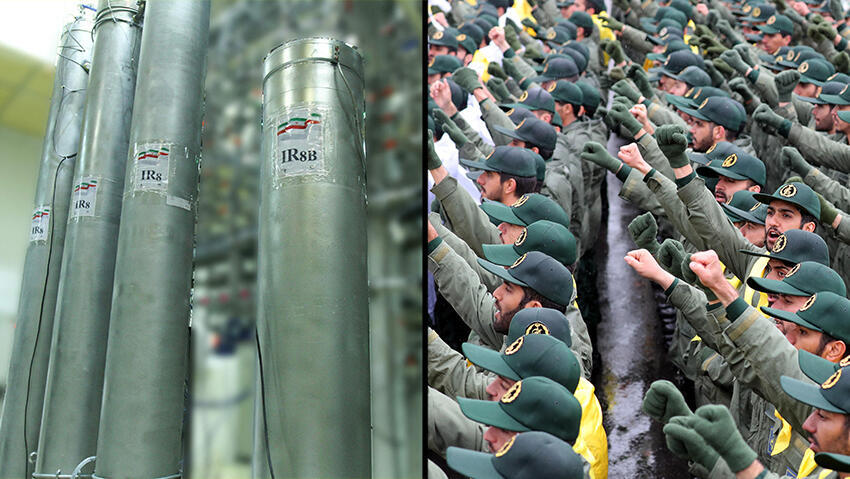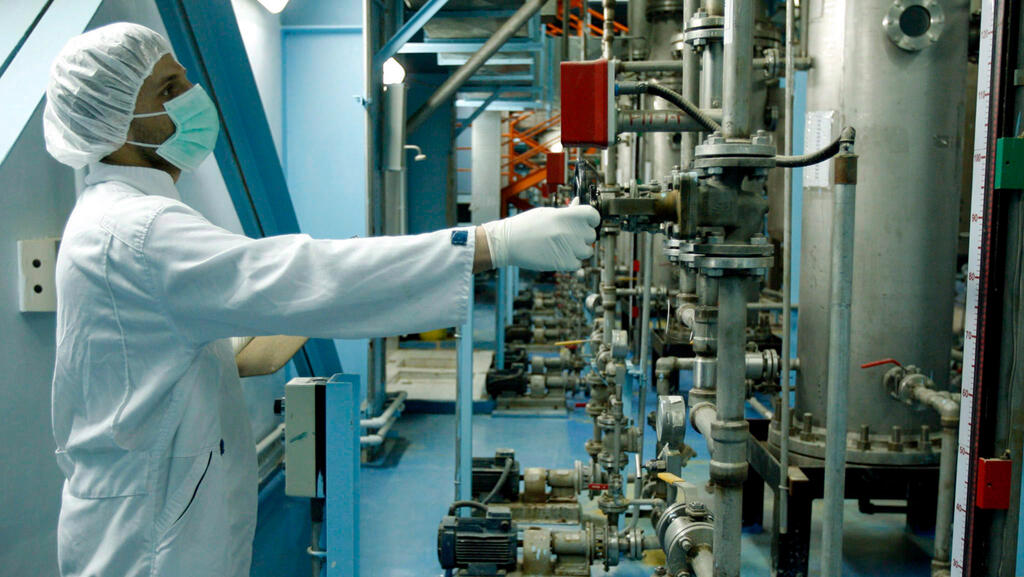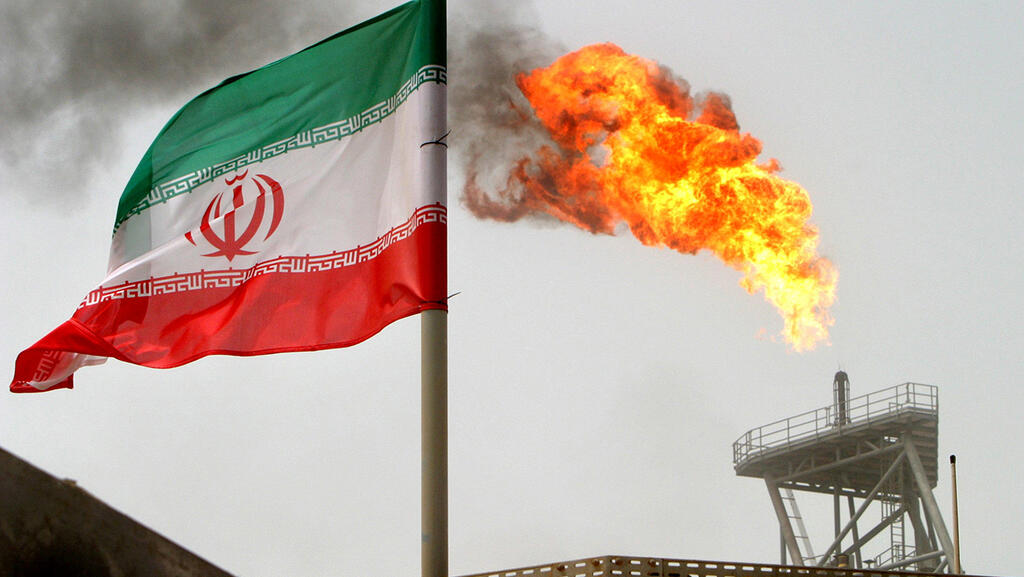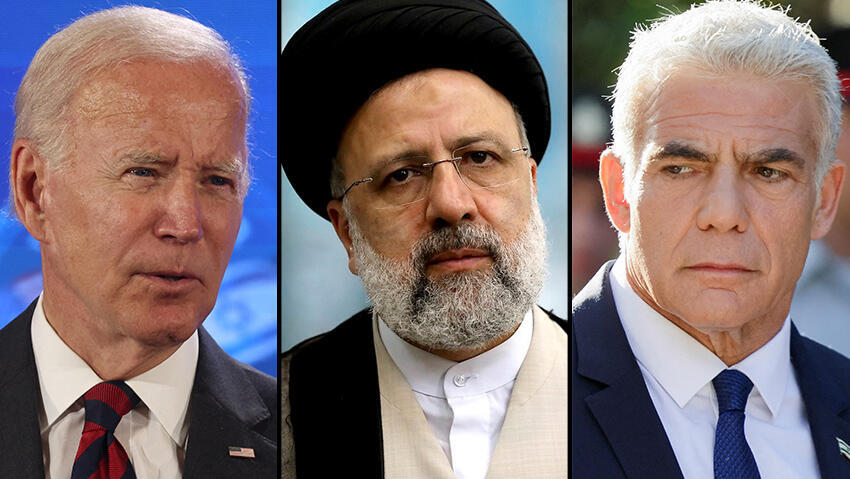Not much is known about the details of the new nuclear agreement between the West and Iran, which is being finalized these days.
But leaked parts of the new agreement's draft, show it is much worse than the one signed by U.S. President Barak Obama in 2015. Jerusalem is still making considerable efforts to persuade Washington not to sign the renewed agreement or at least make some of its clauses tougher on Iran. But, the deal appears to be all but revived.
Israeli security officials know very well Iran already has all the necessary technology and capabilities needed to rapidly enrich uranium to at least 60%, enough to manufacture a nuclear weapon core.
The Jewish state is trying to convince the Americans to set tougher conditions for signing of the agreement, which would torpedo the talks and prevent Iran from receiving tens of billions of dollars that Tehran and the Islamic Revolutionary Guard Corps (IRGC) would gain if the economic sanctions on them are removed (which is one of the main clauses of the deal).
Israeli officials understand the West was defeated in its battle to prevent uranium enrichment, and that Iran can already enrich it to any level it desires, all it takes is the order of Supreme Leader Ali Khamenei. However, if a nuclear agreement isn't signed and sanctions are not lifted, it would still be possible to prevent Iran from receiving funds the country will likely use to finance terror activities in order to undermine stability in the Middle East and harm Israel.
The funds will also boost the Iranian regime, which currently is experiencing economic distress, and thwart any rebellion. The money could also be used to develop more accurate missiles and drones, which will eventually make their way to Hezbollah, Syria, and the Palestinian terror groups.
To become a nuclear powerhouse, as Iran aspires to be, its weapons program must develop and produce three components: fissile material for the core of the nuclear device; the nuclear weapon itself with a reliable explosive mechanism (the bomb becomes operational once its size and weight are reduced, so it can be installed on a missile warhead); and missiles, aircraft, or any other means that can carry the bomb to its destination.
Iran already has missiles that can carry a nuclear warhead. Iran also controls the uranium enrichment process that allows it to produce fissile material for the bomb's core. In fact, Iran can already be defined as a "nuclear threshold state" - a country that manages to enrich uranium at 90% - sufficient amount for at least one warhead.
However, Iran does not yet have enough fissure to arm five warheads, as it plans. The most important ingredient that Iran does not yet have is the knowledge and ability to create a reliable explosive device (which will surely work properly in an experiment or when it is used), and the ability to shrink it to be placed on a warhead for a missile or an aircraft to carry.
5 View gallery
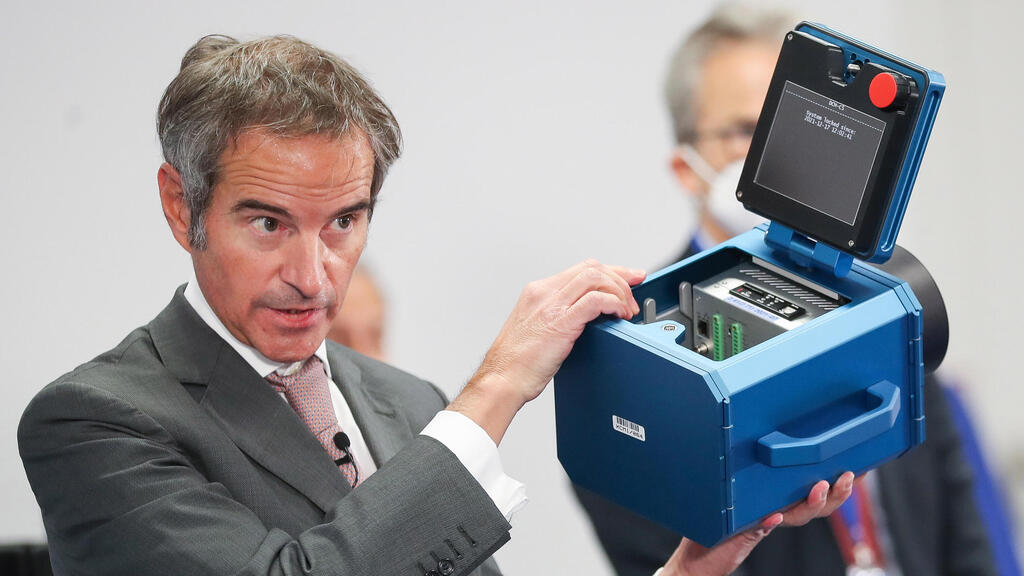

IAEA head holds a monitoring camera model similar to the ones in the Iranian nuclear sites
(Photo: EPA)
The renewed nuclear agreement - just like the original one from 2015 - does not address all three of the aspects, thus it will only delay the uranium enrichment and the accumulation of the needed material by eight to nine years.
When the original agreement was signed, it was defined by Israel as a "bad" because it only prevented Iran from obtaining fissile material until January 2031, and delayed the development and production of advanced centrifuges for enriching uranium until 2026.
Nowadays, Iran already has advanced IR6 centrifuges developed and installed, and it already produced several grams of uranium metal used for the warhead core. It means that the renewed agreement can at most prevent the production of large quantities of uranium until January 2031.
Therefore, billions of dollars Iran will earn from the removal of sanctions upon signing the agreement, worry Israeli officials far more than the flaws and weaknesses of the renewed nuclear deal.
The new agreement can still benefit Israel and the West in two aspects: It may delay the production and accumulation of nuclear material for several years, and will renew the full and sometimes invasive monitoring of the International Atomic Energy Agency (IAEA) on Iran's nuclear facilities. In the present situation, where there is partial surveillance, as some cameras are currently turned off, no one can monitor how much uranium has been enriched, to what level, and how many new centrifuges were installed.
If the agreement is signed, the West and Israel will have a much clearer picture of what is going on Iran's nuclear sites.
The conflict of interests of the U.S.
From the point of view of U.S., things look differently. Now, Washington has an interest in lifting the sanctions on Iran and helping it earn money from oil and gas export. Experts estimate that instead of smuggling 2.5 million barrels per day to China or India with pennies on the dollar, Iran could export at market prices some 3.5 million barrels per day.
As a result of the Russian invasion of Ukraine, the price of an oil barrel nowadays is about $100, but Iran can't benefit from the situation because of the sanctions. Furthermore, the Americans and Europeans would really wish Iran to return to full production of oil and gas to fill the shortages that Russia had created for the coming winter in Europe.
The U.S. also wants to pull Iran from the grasp of China and Russia, to limit the strategic and economic bargaining power of the anti-Western camp. Thus, the American economic and global strategic interests vary from Israeli ones, and therefore, it is very likely that the U.S. will indeed sign the renewed nuclear agreement.
But, Khamenei is in no hurry. He probably doesn't trust the Americans and hates them more than he is anxious to reach an agreement. Iran's economy adapted itself to the sanctions, and every day that passes without IAEA supervision, allows Iran to accumulate additional quantities of enriched uranium. Therefore, another month of sanctions won't change much for Iran, and it will allow it to further humiliate the U.S.
Israel, as said above, is trying to influence the Americans in order to sabotage the negotiations, or at least to make last-minute changes in the deal. In Jerusalem, some argue that Biden, like Khamenei, is stubborn, so he may extract a better agreement out of the Iranians, or decide to suspend negotiations until Tehran rescinds some of its problematic demands.
The Pentagon is also paying close attention to Israeli arguments when Defense Minister Benny Gantz raises them in talks with his U.S. counterpart, but it is unlikely to influence Washington.
This is why Israel and the U.S. should co-formulate a new strategy against Iran that will "renew the vows" of commitment to stopping Iran from obtaining nuclear weapons.
This strategy should have at least four key elements: tight intelligence surveillance to prevent Iran from secretly developing a nuclear explosive device and converting it to a warhead or bomb, while making sure Iran doesn't enrich uranium to a level higher than 60%; steps, methods and countermeasures that would be implemented if Iran restores its nuclear weapons development program or enriches uranium contrary to what the agreement allows; an Israel-U.S. agreement that specifies under what conditions Iran would be considered to have violated the revived deal; and finally, understandings on the principles of action that Israel and the U.S will take together or separately if Iran does indeed acquires a nuclear bomb.


